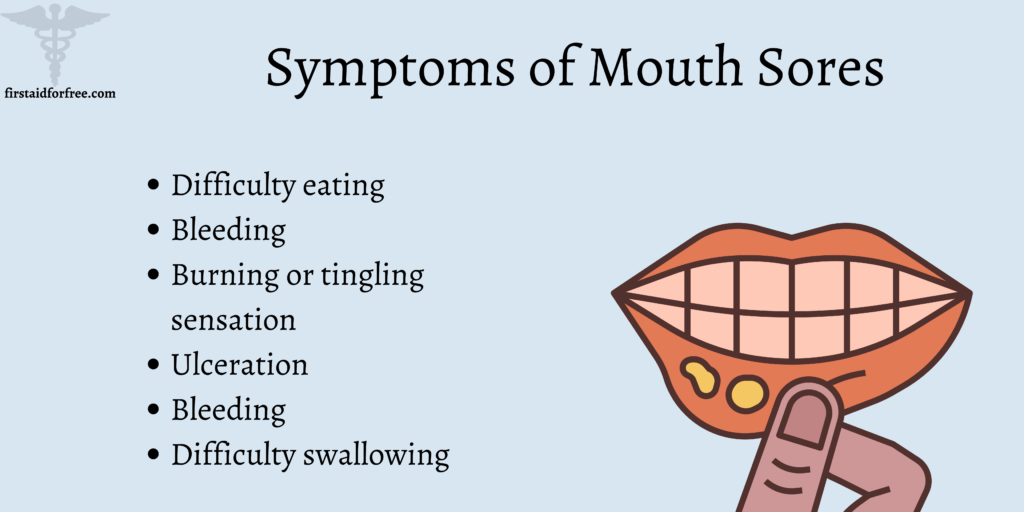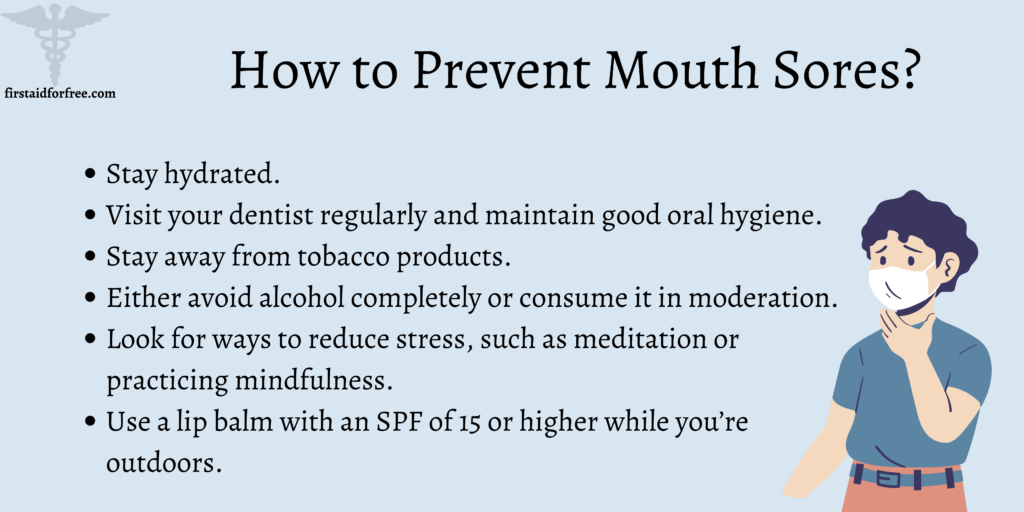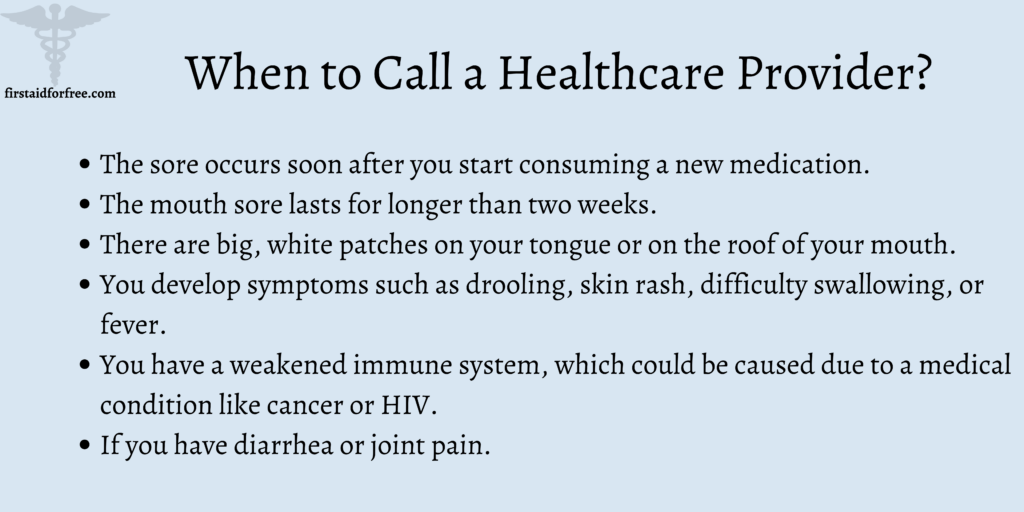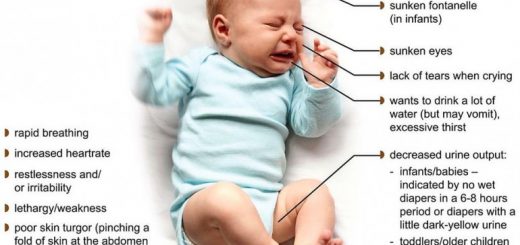Mouth Sores First Aid: A Guide to Quick Relief Techniques
Were you aware of the fact that canker sores – which are a type of mouth sores – affect almost 25% of the population?
As someone who has suffered from mouth sores several times, I can safely say that not only are they uncomfortable and unpleasant, but that they can often be quite painful, which is why it’s so integral to know how to deal with them and get rid of them.
Mouth sores can be defined as painful lesions that get formed in a human being’s oral soft tissues. Numerous people are affected by this common ailment at some point or another.
These usually appear inside the cheeks, tongue, gums, lips, and the roof of a person’s mouth. Reports suggest that close to 20% of the people experience canker sores at one point during their lifetime.
More than half of the people in America get infected by the virus, which leads to cold sores, and about 20% to 40% of them develop a cold sore due to it.
Have you ever been in the middle of experiencing a painful mouth sore and wondered what is the best way to treat it at home? Well, fortunately for you, we have just that information.
In this article, we will be diving deep into the first aid for mouth sores, what their symptoms and causes are, how many types of mouth sores exist, how to prevent them, and much more.
Types of Mouth Sores
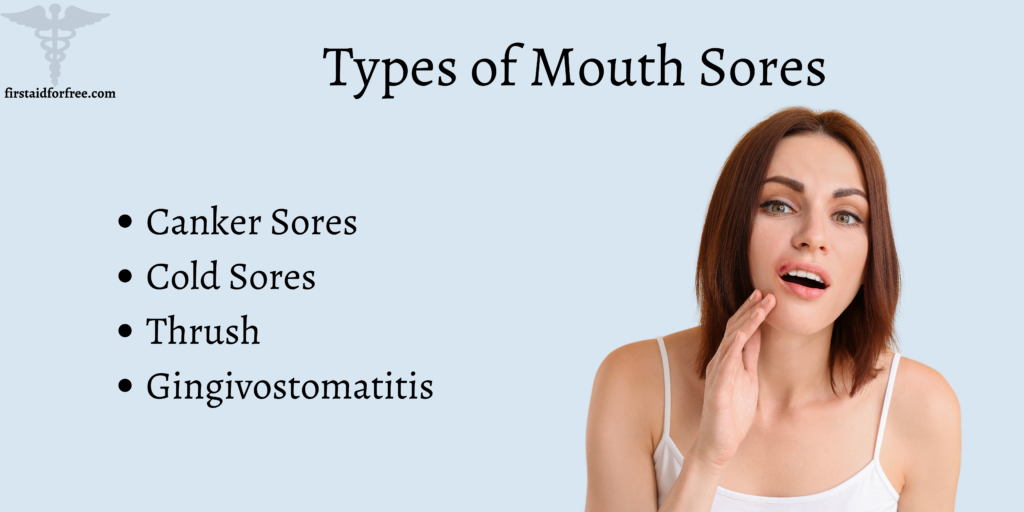
Various medical conditions can cause people to develop mouth sores, such as oral cancer, erythroplakia, autoimmune diseases, and leukoplakia.
A couple of the types of mouth sores to know about include:
1. Canker Sores
Canker sores are often known as mouth ulcers, and they’re one of the most common types of mouth sores. The appearance of canker sores is usually red with gray, yellow, or white in the middle. They usually go away in about 10 or 14 days and are not contagious.
2. Cold Sores
Cold sores, which are also called fever blisters, occur due to the herpes simplex virus. They are contagious, unlike canker sores, and can be transmitted from one person to another by sharing beverages and food or through kissing.
3. Thrush
Thrush occurs when a yeast infection develops inside a person’s mouth. Also known as candidiasis, oral thrush causes creamy, white lesions to form on a person’s gums, cheeks, and tongue. Although it’s not common for it to be transmitted from one individual to another, it could happen, especially among those who are immunocompromised. Even though it’s common among people who have dentures, anyone can develop them.
4. Gingivostomatitis
Gingivostomatitis could occur due to a viral or bacterial infection and can often occur if someone has poor oral hygiene. It leads to cold sores on the inner cheeks or the gums and is pretty common among children.
Symptoms of Mouth Sores
The symptoms of mouth sores could vary depending on the type of mouth sore. Most of them have signs such as pain, redness, and inflammation. Some of the other symptoms include:
- Difficulty eating
- Bleeding
- Burning or tingling sensation
- Ulceration
- Difficulty swallowing
What are the Causes of Mouth Sores?
Right from common injuries to serious medical conditions, the causes of mouth sores can be quite varied. The common causes linked to mouth sores are as follows:
- Biting your cheek, tongue, or lip.
- Stress.
- Hormonal changes.
- Exposure to the herpes simplex virus.
- Using a toothbrush with hard bristles or brushing too hard.
- Burning your mouth by consuming hot food.
- Consuming tobacco products.
- Irritation due to braces or other orthodontic devices.
There are also numerous health conditions and diseases that could lead to mouth sores, and they are:
- Anemia
- AIDS and HIV
- Mononucleosis
- Folate deficiency
- Pemphigus vulgaris
- Crohn’s disease
- Hand, foot, and mouth disease
- Celiac disease
- Irritable bowel syndrome (IBS)
- Lupus
- HPV (human papilloma virus)
Mouth Sores First Aid
Although mouth sores usually go away on their own in about 10 to 14 days, there are certain steps you can take to make it better. Those steps include:
- Consume over-the-counter pain relievers, such as acetaminophen.
- Go for fruit-flavored ice pops, especially if you have a mouthburn.
- Gargle using warm salt water a couple of times every day.
- Stay away from salty and spicy foods, hot foods and beverages, and citrusy foods.
- Avoid squeezing the sores.
If you have canker sores, these are the steps you can follow:
- Create a thin paste of baking soda and water and apply it to the sore.
- Mix one part of water with one part of hydrogen peroxide and apply this mixture to your sore by making use of a cotton swab.
- If your case is more severe, you can go for an anti-inflammatory amlexanox paste, a fluocinonide gel, a chlorhexidine gluconate mouthwash, or a dexamethasone mouthwash.
Diagnosis
Determining the cause of a mouth sore isn’t too difficult, especially if a person has experienced canker sores before. Someone who bites their cheek often will know that the sore resulted from it.
Those who have a medical condition, such as herpes of the mouth, will realize that mouth sores are one of the symptoms of the condition.
When you visit a doctor, they will be able to tell you why you have recurring mouth sores by taking a look at them. They could also perform certain tests, such as blood tests and swabs.
If your doctor suspects that the cause behind your mouth sores is a serious illness, then they could recommend conducting a biopsy of the given area to check for health issues such as cancer.
How to Prevent Mouth Sores?
While it’s not always possible to prevent mouth sores, there are certain measures one can take to reduce the risk of developing them. They are as follows:
- Stay hydrated.
- Visit your dentist regularly and maintain good oral hygiene.
- Stay away from tobacco products.
- Either avoid alcohol completely or consume it in moderation.
- Look for ways to reduce stress, such as meditation or practicing mindfulness.
- Use a lip balm with an SPF of 15 or higher while you’re outdoors.
When to Call a Healthcare Provider?
If you have mouth sores, the following are the situations when you should call your healthcare provider:
- The sore occurs soon after you start consuming a new medication.
- The mouth sore lasts for longer than two weeks.
- There are big, white patches on your tongue or on the roof of your mouth.
- You develop symptoms such as drooling, skin rash, difficulty swallowing, or fever.
- You have a weakened immune system, which could be caused due to a medical condition like cancer or HIV.
- If you have diarrhea or joint pain.
FAQs
What causes mouth sores?
Some of the causes of mouth sores include stress, hormonal changes, consuming tobacco products, burning your mouth when you eat hot food, and biting your tongue, lip, or cheek.
How long do mouth sores last?
Mouth sores usually last for about 10 to 14 days and go away on their own. In some cases, they could last for up to six weeks.
What is the best treatment for mouth sores?
Doing a salt water rinse is one of the most common go-to home treatments for mouth sores.
Are mouth sores serious?
Certain situations could mean that a mouth sore is serious, such as when it lasts for longer than 14 days.
Is toothpaste good for mouth sores?
When you have mouth sores, use a toothpaste that is made up of natural ingredients, such as aloe vera or tea tree oil, as they could help in soothing the mouth sores.
What deficiency causes mouth sores?
Nutritional deficiencies can often lead to mouth sores, such as if you have an iron deficiency or vitamin C deficiency.
What is the best medicine for mouth ulcers?
If you experience mouth ulcers, some of the treatments or medications you could be recommended include corticosteroid lozenges, an antimicrobial mouthwash, or a salt/saline mouthwash.
Conclusion
There aren’t any known long-term effects associated with mouth sores. However, people who develop mouth sores do say that they keep reappearing every now and then. This could be if a person has a weak immune system or if they’re going through stress.
If you experience mouth sores frequently, have a word with your healthcare provider to determine if they could be due to an underlying medical condition.
Although mouth sores are mostly harmless, they can be quite painful. Luckily, there are medical treatments available to look after them, along with homemade remedies and simple solutions that can help in shooing them away.
If you believe you’re developing unusual symptoms or if your mouth sores haven’t gone away even after a couple of weeks, then it’s vital to get in touch with your doctor. This can help in detecting any other serious medical issues and ruling out other possibilities in the process.

